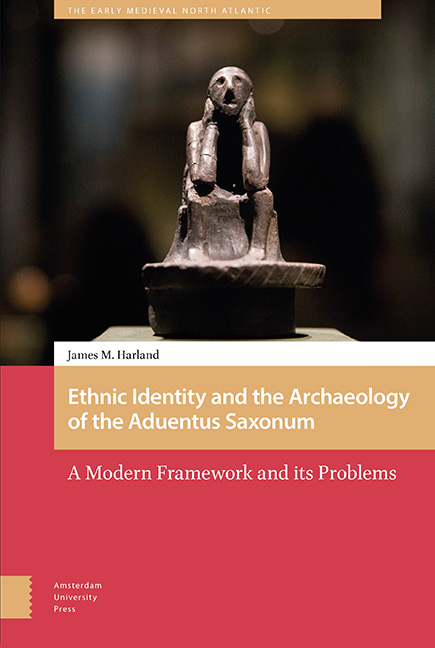Book contents
- Frontmatter
- Dedication
- Table of Contents
- List of Tables and Figures
- Acknowledgements
- 1 Introduction
- 2 Ethnicity and Archaeology
- 3 Empiricism and Metaphysics
- 4 Deconstructing Anglo-Saxon Archaeology
- 5 The Material Evidence Reconsidered
- 6 Building an Alternative
- 7 New Approaches and Final Reflections
- Appendix: Spong Hill Data
- Bibliography
- Index
6 - Building an Alternative
Published online by Cambridge University Press: 16 December 2021
- Frontmatter
- Dedication
- Table of Contents
- List of Tables and Figures
- Acknowledgements
- 1 Introduction
- 2 Ethnicity and Archaeology
- 3 Empiricism and Metaphysics
- 4 Deconstructing Anglo-Saxon Archaeology
- 5 The Material Evidence Reconsidered
- 6 Building an Alternative
- 7 New Approaches and Final Reflections
- Appendix: Spong Hill Data
- Bibliography
- Index
Summary
In the previous chapters, we learned that the expression of ethnic identity, and specifically ‘Germanic,’ ‘Angle,’ or ‘Saxon’ (etc.) identities, cannot be demonstrated in the material record through purely archaeological means. But neither, importantly, can we disprove the expression of such ethnic identities. We saw that all attempts to argue otherwise ultimately depend on non-rational interpretative decisions, or ‘leaps of faith’: points at which an argument departs from empirical observation. Such points of departure are frequently made when an author adopts the assumption that there existed a conscious ‘Germanic’ cultural ethos which had meaning for the members of the societies presumed to express it in material culture. This chapter seeks to investigate how else we might examine the ideological and cultural expressions which are nevertheless manifestly displayed by this material culture. But how? Chapter 2 argued that the near-universal uncritical application of a constructivist framework to the study of archaeology has produced a theoretical malaise. In addressing this we should not merely demonstrate some of the underlying sources of this malaise, but try to offer possible ways out of it, which avoid the epistemological flaws at its root. To deny the demonstrability of the presence of ethnic identity in the material record need not amount to the denial of the presence of certain identifiable cultural traits, provided we are careful to ensure that in examining them, we do not leap to hasty conclusions about the implications of the presence of these traits for the social identity of those deploying them.
The transformation of Romanness is a crucial factor to consider. All too often, as we saw in the previous chapter, Britain is assumed to be an exceptional case: a region where dramatic rupture from the imperial world system led to a period ‘Dark Age’ regression, an abandonment and forgetting of Britain's Roman past. Though the economic collapse of Roman Britain and the dramatic impact this must have had on social relations cannot be understated, we saw that much of what we know about the separation of Roman from ‘post-Roman’ material relies on empirically dubious assumptions, chronologically insecure artefact typologies, and a set of written source materials that are given far too much credence.
- Type
- Chapter
- Information
- Ethnic Identity and the Archaeology of the aduentus SaxonumA Modern Framework and its Problems, pp. 195 - 256Publisher: Amsterdam University PressPrint publication year: 2021



